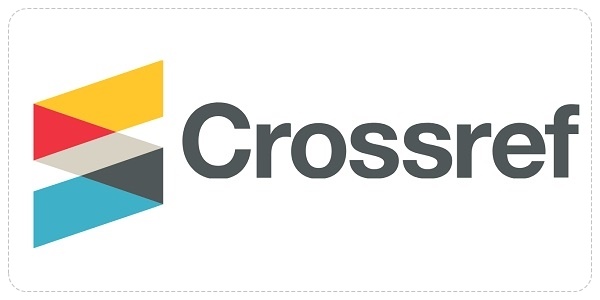Effects of Constructive Controversy and Self-Efficacy on Students’ Attitude to Genetics' Concepts
Abstract
Genetics concepts (GCs) are fundamental to human development and societal well-being. However, advancements in genetics have ignited public controversies, particularly in areas such as genetic modification of organisms and sex determination. Despite their importance, students often display negative attitudes toward GCs, while prior educational interventions have largely failed to integrate socioscientific issues, limiting their effectiveness. This study aims to improve students’ attitudes and understanding of GCs by utilizing the Constructive Controversy Strategy (CCS), a pedagogical approach designed to foster critical thinking and collaborative learning. Grounded in situated learning theory, the study adopted a pretest-posttest control group quasi-experimental design. A total of 240 senior secondary school science students from six public schools were randomly assigned to the CCS group (n=121) and the conventional strategy group (n=119). Data were analyzed using analysis of covariance (ANCOVA) at a significance level of p < 0.05. Results revealed a significant main effect of CCS on students’ attitudes toward GCs (F(1, 215) = 4.42; partial η² = 0.02). Genetics self-efficacy also significantly influenced attitudes (F(2, 214) = 3.12; partial η² = 0.03), and an interaction between treatment and genetics self-efficacy was observed (F(2, 213) = 3.04; partial η² = 0.05).The findings conclude that CCS is an effective strategy for improving students’ attitudes and understanding of GCs by integrating socioscientific issues. This approach supports the development of genetics-literate citizens equipped to engage with contemporary societal challenges.
Keywords
Full Text:
PDFReferences
Adeogun, A. A., & Olisaemeka, B. U. (2011). Influence of school climate on students' achievement and teachers' productivity for sustainable development. Online Submission, 8(4), 552-557.
Ahmeda, I., Hamzah, A., & Abdullah, M. N. (2020). Effect of emotionally positive classroom atmosphere on student social-emotional competence. International Journal of Innovation, Creativity and Change, 8(12), 320-339.
Aivelo, T., & Uitto, A. (2021). Factors explaining students’ attitudes towards learning genetics and belief in genetic determinism. International Journal of Science Education, 43(9), 1408-1425. https://doi.org/10.1080/09500693.2021.1917789
Allen, G. E., & Baker, J. J. (2017). Scientific process and social issues in biology education. Switzerland: Springer International Publishing. https://doi.org/10.1007/978-3-319-44380-5
Al-Said, K. (2023). Influence of teacher on student motivation: Opportunities to increase motivational factors during mobile learning. Education and Information Technologies, 28(10), 13439-13457. https://doi.org/10.1007/s10639-023-11720-w
Baldwin, J. A., Ebert-May, D., & Burns, D. J. (1999). The development of a college biology self-efficacy instrument for nonmajors. Science Education, 83(4), 397-408. https://doi.org/10.1002/(SICI)1098-237X(199907)83:4<397::AID-SCE1>3.0.CO;2-%23
Berger, J., & Karabenick, S. A. (2011). Motivation and students’ use of learning strategies: Evidence of unidirectional effects in mathematics classrooms. Learning and Instruction, 21(3), 416-428. https://doi.org/10.1016/j.learninstruc.2010.06.002
Bernstein, D. A. (2021). Teaching styles and troublesome students. Canadian Psychology, 62(4), 367-376. https://doi.org/10.1037/cap0000279
Bryant, S. K. (2017). Self-efficacy sources and academic motivation: A qualitative study of 10th graders (Doctoral dissertation, East Tennessee State University).
Cebesoy, U. B., & Oztekin, C. (2018). Genetics literacy: Insights from science teachers’ knowledge, attitude, and teaching perceptions. International Journal of Science and Mathematics Education, 16, 1247-1268. https://doi.org/10.1007/s10763-017-9840-4
Chen, S. Y., Chu, Y. R., Lin, C. Y., & Chiang, T. Y. (2016). Students' knowledge and attitudes towards biotechnology revisited, 1995-2014: Changes in agriculture biotechnology but not in medical biotechnology. Biochemistry Molecular Biology Education, 44(5), 475-491. https://doi.org/10.1002/bmb.20969
Ekong, N. J., Anongo, M. C., Okrikata, E., & Akpan, G. A. (2015). Influence of selected variables on students' academic performance in genetics and their implications for effective application of Stem Education. Journal of Emerging Trends in Educational Research and Policy Studies, 6(4), 331-337. https://hdl.handle.net/10520/EJC181665
Fraser, J. M., Timan, A. L., Miller, K., Dowd, J. E., Tucker, L., & Mazur, E. (2014). Teaching and physics education research: Bridging the gap. Reports on Progress in Physics, 77(3), 032401. https://doi.org/10.1088/0034-4885/77/3/032401
Hagay, G., Peleg, R., Laslo, E., & Ayelet, B. T. (2013). Nature or nurture? A lesson incorporating students’ interests in a high-school biology class. Journal of Biological Education, 47, 117-122. https://doi.org/10.1080/00219266.2013.773363
Johnson, D. W., & Johnson, R. (2007). Creative controversy: Intellectual challenge in the classroom (4th ed.). Edina: Interaction Book Company.
Johnson, D. W., & Johnson, R. T. (2013). Restorative approaches in schools: Necessary roles of cooperative learning and constructive conflict. In Restorative approaches to conflict in schools (pp. 159-174). Routledge.
Johnson, D. W., & Johnson, R. T. (2015 Constructive controversy: Teaching Students How to Think Creatively. In: Vollmer, A., Dick, M., Wehner, T. (eds) Konstruktive Kontroverse in Organisationen. uniscope. Publikationen der SGO Stiftung. Springer Gabler, Wiesbaden. https://doi.org/10.1007/978-3-658-00263-3_4
Johnson, D. W., Johnson, R. T., & Stanne, M. B. (2020). Cooperative learning in higher education: A meta-analysis. Educational Psychology Review, 32, 759-785.
Johnson, R. W., & Johnson, R. T. (2016). Cooperative learning and teaching citizenship in democracies. International Journal of Educational Research, 76, 162-177. https://doi.org/10.1016/j.ijer.2015.11.009
Korir, D. K., & Kipkemboi, F. (2014). The impact of school environment and peer influences on students’ academic performance in Vihiga County, Kenya. International Journal of Humanities and Social Science, 4(5), 1-12.
Kundu, A., & Ghose, A. (2016). The relationship between attitude and self-efficacy in mathematics among higher secondary students. Journal of Humanities and Social Science, 21(4), 25-31.
Liu, X., Zhao, L., & Su, Y. S. (2022). Impact of parents’ attitudes on learning ineffectiveness: The mediating role of parental self-efficacy. International journal of environmental research and public health, 19(1), 615. https://doi.org/10.3390/ijerph19010615
Minson, J. A., & Chen, F. S. (2022). Receptiveness to opposing views: Conceptualization and integrative review. Personality and Social Psychology Review, 26(2), 93-111. https://doi.org/10.1177/10888683211061
Nam, C. W. (2014). The effects of trust and constructive controversy on student achievement and attitude in online cooperative learning environments. Computers in Human Behavior, 37, 237-248. https://doi.org/10.1016/j.chb.2014.05.007
O’Neill, T. A., Hoffart, G. C., McLarnon, M. M., Woodley, H. J., Eggermont, M., Rosehart, W., & Brennan, R. (2017). Constructive controversy and reflexivity training promotes effective conflict profiles and team functioning in student learning teams. Academy of Management Learning & Education, 16(2), 257-276. https://doi.org/10.5465/amle.2015.0183
Sadi, O., & Uyar, M. (2013). The relationship between self-efficacy, self-regulated learning strategies and achievement: A path model. Journal of Baltic Science Education, 12(1), https://doi.org/21-33. 10.33225/jbse/13.12.21
Schwarzer, R., & Jerusalem, M. (1995). Generalized self-efficacy scale. In J. Weinman, S. Wright, & M. Johnston (Eds.), Measures in health psychology: A user’s portfolio. Causal and control beliefs (pp. 35-37). Windsor, UK: Nfer-Nelson.
Sen, S., & Yilmaz, A. (2016). Devising a structural equation model of relationships between preservice teachers’ time and study environment management, effort regulation, self-efficacy, control of learning beliefs, and metacognitive self-regulation. Science Education International, 27(2), 301-316.
Seymour, V. (2016). The human–nature relationship and its impact on health: A critical review. Frontiers in public health, 4, 260. https://doi.org/10.3389/fpubh.2016.00260
Sri, R., Arum, S., Anisyah, D. A., & Noor, F. M. (2018). High school students’ attitudes about socioscientific issues contextualized in inquiry-based chemistry instruction. ICEMT, 80-84. https://doi.org/10.1145/3206129.3239436
Teng, Z., Cai, Y., Gao, Y., Zhang, X., & Li, X. (2022). Factors affecting learners’ adoption of an educational metaverse platform: An empirical study based on an extended UTAUT model. Mobile Information Systems, 2022(1), 5479215. https://doi.org/10.1155/2022/5479215
Tichy, M., Johnson, D. W., Johnson, R. T., & Roseth, C. (2010). The impact of constructive controversy on moral development. Journal of Applied Social Psychology, 40(4), 765-787. https://doi.org/10.1111/j.1559-1816.2010.00597.x
Wernersbach, B. M., Crowley, S. L., & Bates, S. C. (2014). Study skills course impact on academic self-efficacy. Journal of Educational Development, 3(7), 14-33. https://www.jstor.org/stable/i24614027
Yau, H. K., & Leung, Y. F. (2018). The Relationship between Self-Efficacy and Attitudes towards the Use of Technology in Learning in Hong Kong Higher Education. In Proceedings of the International Multi-Conference of Engineers and Computer Scientists (pp. 832-834).
Zeidler, D. L. (2014). Socioscientific issues as a curriculum emphasis: Theory, research, and practice. In Handbook of research on science education, volume II (pp. 697-726). Routledge.
Zeidler, D. L., & Sadler, T. D. (2023). Exploring and expanding the frontiers of socioscientific issues. In Handbook of research on science education (pp. 899-929). Routledge.
Zeidler, D. L., Herman, B. C., & Sadler, T. D. (2019). New directions in socioscientific issues research. Disciplinary and Interdisciplinary Science Education Research, 1(1), 1-9. https://doi.org/10.1186/s43031-019-0008-7
Zhang, Y., & Li, Z. (2023). The use of constructive controversy to improve students’ understandings of and attitudes towards animal welfare in China. Journal of Biological Education, 57(5), 1048-1061. https://doi.org/10.1080/00219266.2021.2011768
DOI: https://doi.org/10.17509/pdgia.v22i3.66462
Refbacks
- There are currently no refbacks.
INDEXED BY

This work is licensed under a Creative Commons Attribution-ShareAlike 4.0 International License
















